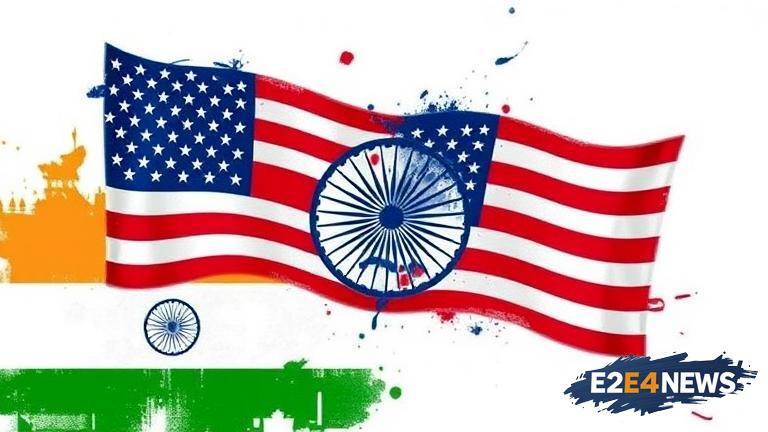The United States has taken a significant step towards imposing tariffs on Indian products, with the issuance of a draft notice that outlines the implementation of 50% tariffs on certain goods from India. This move is set to take effect on August 27, and it could have far-reaching implications for the trade relationship between the two countries. The tariffs are being imposed in response to India’s tariffs on US goods, which the US claims are unfair and discriminatory. The US has been seeking to negotiate a trade deal with India, but the talks have been stalled due to disagreements over issues such as market access and tariffs. The imposition of tariffs is likely to affect a range of Indian products, including textiles, chemicals, and pharmaceuticals. The Indian government has expressed concerns about the impact of the tariffs on the country’s economy, and has urged the US to reconsider its decision. The US has argued that the tariffs are necessary to protect American businesses and workers, and to ensure that India complies with its trade obligations. The move is also seen as a reflection of the growing trade tensions between the US and other countries, including China and the European Union. The US has been pursuing a protectionist trade policy, which has led to tensions with its trading partners. The imposition of tariffs on Indian products is likely to have significant implications for the global trade landscape, and could lead to retaliatory measures from other countries. The Indian government has already imposed tariffs on US goods, including almonds and apples, in response to the US tariffs on Indian steel and aluminum. The trade tensions between the US and India are also likely to affect the bilateral relationship between the two countries, which has been strengthening in recent years. The US is one of India’s largest trading partners, and the imposition of tariffs could affect the flow of investment and trade between the two countries. The Indian government has urged the US to reconsider its decision, and to engage in negotiations to resolve the trade disputes. The US has also been critical of India’s trade policies, including its tariffs on US goods and its restrictions on foreign investment. The imposition of tariffs is likely to affect a range of industries in India, including the textiles and pharmaceuticals sectors. The Indian government has announced plans to provide support to affected industries, including financial assistance and export incentives. The trade tensions between the US and India are also likely to affect the global economy, as the two countries are major players in international trade. The imposition of tariffs could lead to higher prices for consumers, and could affect the competitiveness of businesses in both countries. The US and India have a long-standing trade relationship, and the imposition of tariffs is likely to have significant implications for the future of trade between the two countries. The Indian government has expressed concerns about the impact of the tariffs on the country’s economy, and has urged the US to reconsider its decision. The US has argued that the tariffs are necessary to protect American businesses and workers, and to ensure that India complies with its trade obligations. The move is also seen as a reflection of the growing trade tensions between the US and other countries, including China and the European Union. The US has been pursuing a protectionist trade policy, which has led to tensions with its trading partners. The imposition of tariffs on Indian products is likely to have significant implications for the global trade landscape, and could lead to retaliatory measures from other countries.
